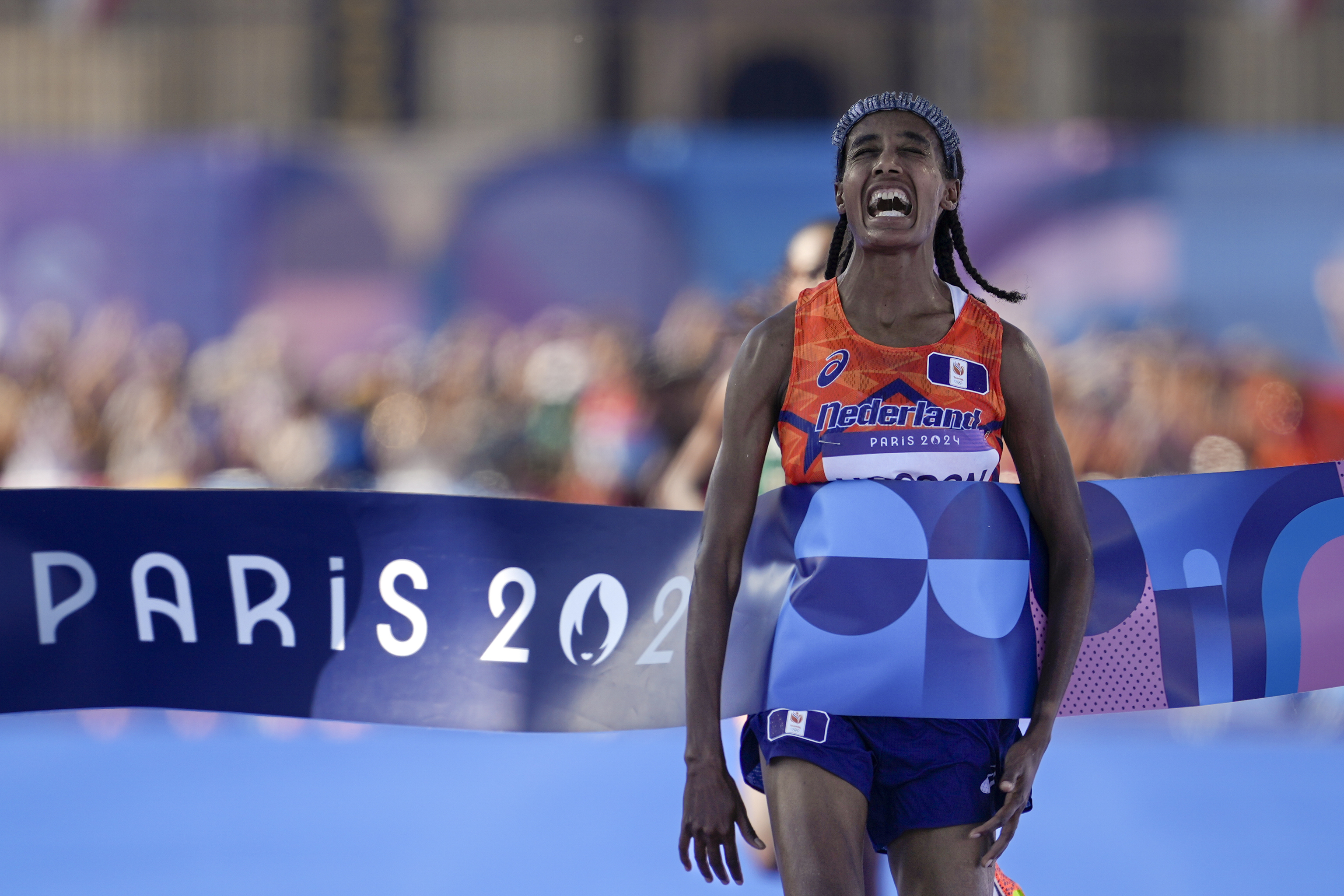The challenge for Sifan Hassan was monumental. After winning two golds and a bronze in Tokyo from the 1,500 to the 10,000 meters, with the last one in the shortest distance, in Paris she aimed to expand the challenge to the marathon. Ultimately, she narrowed it down and dropped the 1,500. She couldn't win the 5,000 and 10,000 as she did three years ago, but she secured bronze medals in both events. It made sense as the Dutch athlete had focused her preparation on the longest distance. The final athletics event in Paris proved it, resolved in a tight sprint where Hassan used her track speed to enter the Invalides straight like entering glory. The legendary Emil Zatopek achieved gold in the 5,000, 10,000, and marathon at the 1952 Helsinki Games. The Dutch athlete emulates him with silver and bronze in Paris.
At 31 years old, she has extended her dominance from middle-distance to long-distance running, a combination that allowed her to unleash the finishing kick acquired on the track in the longest race. Before that, she demonstrated impeccable endurance and strategic sense, never losing control of the race and never leading it. The decisive moment came in the last kilometer when she left behind the Ethiopian Assefa, who tried to hinder her as if they were in the final straight of a stadium track race, not a marathon.
The challenging course did not prevent the Dutch athlete from running the fastest marathon of the Games, as had already happened in the men's category, finishing in 2:22:55 and surpassing the record from London 2012 (2:23:08).
At the starting line, Hassan remained focused, looking straight ahead. During the race, she managed her energy flawlessly. The race started at a manageable pace, allowing the Spanish athlete Majida Maayouf to stay in the leading group. She finished as the first Spanish athlete, in 17th place, followed by Meritxel Soler (25) and Esther Navarrete (42).
Maayouf and other athletes could only hold on until the African runners decided. When they reached the challenging uphill section at the 25-kilometer mark, the Ethiopians and Kenyans broke away. Hassan remained unfazed by the uphill pace set by her competitors, leaning forward and letting them create distance. Doing otherwise could have drained all her energy, which she needed to run the final quarter of the marathon as if it were another 10,000 meters.
The African athletes, Ethiopians Assefa and Shankule, and Kenyans Obiri and Lokedi, knew that Hassan could be unbeatable in the final sprint, so they attacked with constant pace changes, especially after the 30-kilometer mark. Five women, two from each nationality plus Hassan, reached a finish that would demand a sprint. This played into Hassan's strengths. Genetically, the Dutch athlete born in Ethiopia is suited for long-distance running, a product of the African highlands, ideal for endurance due to both body type and altitude.
The group of five women passed the 40-kilometer mark without any attempts to break away. Obiri tried first but couldn't sustain the effort and fell back. Lokedi followed shortly after. Hassan remained patient. There was no sign of the suffering evident in Obiri's face. The final surge from the Dutch athlete couldn't be matched by Assefa, despite her attempts. The long-awaited gold awaited Hassan, who then allowed herself to smile. Her Olympic journey from the 1,500 to the 5,000, with six medals across two editions, is complete but not finished.
